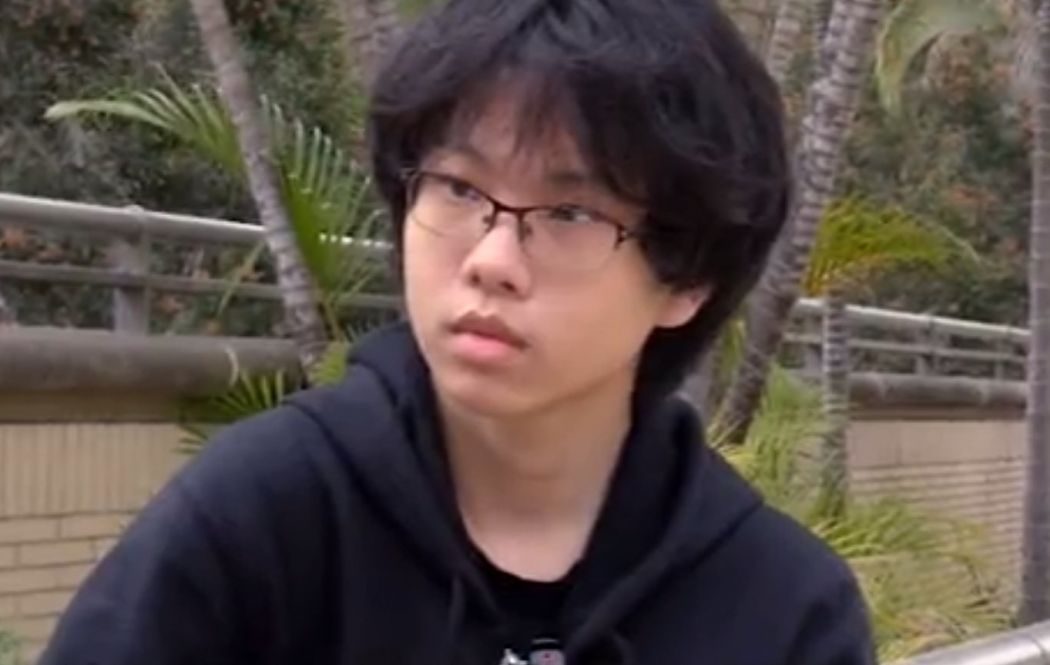A young pro-independence activist who sought asylum in Britain before Hong Kong’s national security law came into force in June says he is passing his time by lobbying foreign politicians – and translating John Stuart Mill into Cantonese.
“I knew the government would come after me as soon as the national security law was in force, so I fled Hong Kong before the enactment,” Honcques Laus told HKFP in a phone interview.
The 18-year-old applied for political asylum once he arrived at Heathrow Airport and expects a decision next January.

In response to the security law, which sparked widespread international criticism, Britain offered residence to Hongkongers who are entitled to hold British National (Overseas) passports which were issued before the 1997 handover. There is the prospect of citizenship after five years.
However, the policy does not benefit Laus, who was born after 1997. He is the youngest of six overseas activists wanted by Hong Kong police under the security law, which bans collusion with foreign powers among other offences.
“I did not know I was wanted until a reporter asked my views on the matter,” he said. But he added that he was prepared to be targeted because of his pro-independence views. He has opened a Facebook page headed “Daily updates on Honcques Laus wanted situation.”
“I believe the UK government will grant me asylum status,” he said.
Pro-independence slogan
Laus first became known to the public after he displayed a pro-independence slogan at a student event attended by Chief Executive Carrie Lam in 2017. He was cleared of possessing an imitation firearm in 2019 following an appeal after bringing an airgun to a designated protest area near the legislature.
In June 2020, Beijing inserted national security legislation directly into Hong Kong’s mini-constitution – bypassing the local legislature – following a year of pro-democracy protests and unrest. It criminalised subversion, secession, collusion with foreign forces and terrorist acts, which were broadly defined to include disruption to transport and other infrastructure. The move gave police sweeping new powers, alarming democrats, civil society groups and trade partners, as such laws have been used broadly to silence and punish dissidents in China. However, the authorities say it has restored stability and peace to the city.

Laus told Apple Daily that his trip to London was the first time in his life he had been on a plane. But he said he was coping well with his new life.
He is currently translating John Stuart Mill’s seminal political essay On Liberty. “Translating classics into Cantonese can effectively promote the status of Hongkongers’ mother tongue, I believe,” he told HKFP.
During his time in the UK, he has also been active in drafting letters to foreign leaders, including US Secretary of State Mike Pompeo. He said he wants leaders of the international community to join forces in confronting the Chinese Communist Party.

Last month, the government urged the public not to defy the security law, adding that it “strongly condemns any acts which challenge the sovereignty, unification and territorial integrity of the People’s Republic of China.”
On July 31, state-run CCTV reported that Hong Kong activists Nathan Law, Ray Wong, Simon Cheng, Wayne Chan and Laus – all living overseas – were “wanted” by Hong Kong police. An American activist, Samuel Chu, was also listed as “wanted,” though local police have yet to confirm any details.
Clarification 16:25: This piece has been updated to note that Lau’s conviction for possessing an imitation firearm was overturned on appeal.
Support HKFP | Policies & Ethics | Error/typo? | Contact Us | Newsletter | Transparency & Annual Report | Apps
Help safeguard press freedom & keep HKFP free for all readers by supporting our team
























